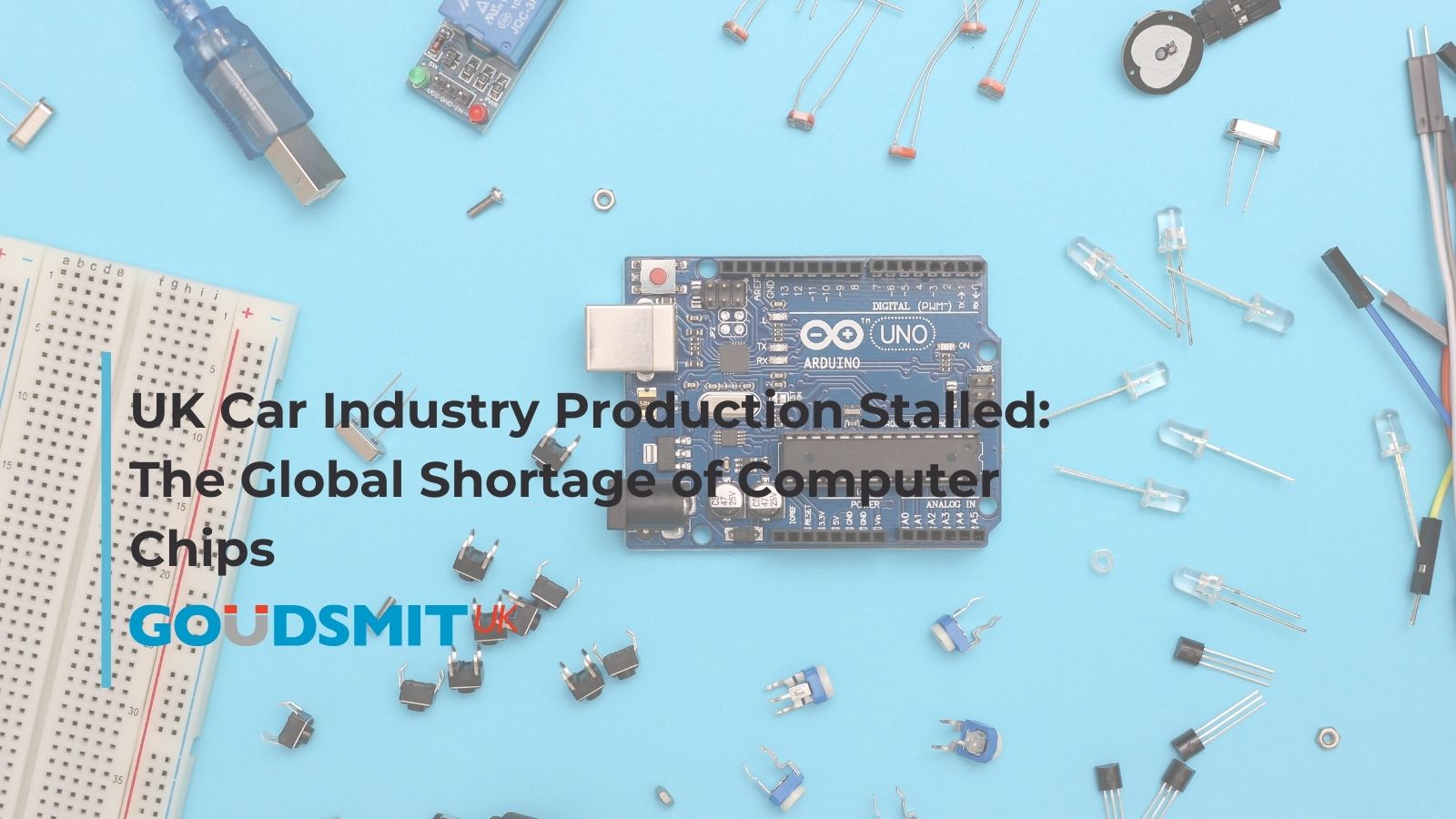The shortage of computer chips globally continues to disrupt the sectors post pandemic recovery. Carmakers are struggling to get their hands on supplies as tech companies increase orders for the parts.
The UK automotive industry output continues to decline as the months-long shortage of computer chips hinders the sectors recovery efforts. While chips are in short supply, car makers have been forced to:
- Slow down their assembly lines
- Cut down on shift rotations
- Pause production entirely
This has pushed delivery times for some new cars back by months. Buyers of some Jaguar Land Rover models were told they will have to wait more than a year for their motors to arrive.
In August, a report from the Society of Motor Manufacturers and Traders (SMMT) stated that the number of cars built in UK factories fell by 27% year on year to 37,200. In August 2020, 51,000 cars were built in UK factories as carmakers raced to make up for the time lost to lockdowns.
UK car industry
The car industry plays a vital element for the UK economy, generating over £78.9 billion a year. Approximately 180,000 people work in manufacturing while 864,000 are employed in the wider supply chain.
Approximately 30 manufacturers are building 70 car models in the UK at present. That includes local firms such as:
- Jaguar Land Rover
- Vauxhall
- Rolls-Royce
Alongside international firms like:
- Ford
- Nissan
Why is the shortage affecting new car production?
As economies began to open up again, the demand in the UK and across the globe recovered rapidly. However, carmakers worldwide have since struggled to increase their output due to the on-going disruption the pandemic continues to cause. Specifically, the global shortage of computer chips which are used in everything from entertainment systems to electric car batteries has notably proved to be most problematic for carmakers globally.
Also impacting on the shortage is the significant increase in electric cars. The UK is making more electric cars, which have considerably more chips in them, than ever before. Hitting a new record, approximately 26% of the cars built by UK manufacturers in July were either battery electric, plug in hybrid, or hybrid electric, according to SMMT.
Several car manufacturers cancelled semiconductor orders at the start of the pandemic because they were concerned about a drop in sales. However, when sales recovered faster than expected, the car giants found themselves at the end of the line for chips.
SMMT’s outlook
The SMMT predicts the chip crisis to wipe 100,00 off the UK’s total car production for 2021. This is a huge blow for the automotive industry with fewer than a million cars built in the past 12 months. This has fallen from 1.7m as recently as 2017.
To date, production in 2021 is 14% higher than 2020, when factories remained closed for months. Output is down by 32% compared to the same period in 2019.
Moreover, Mike Hawes, the SMMT’s Chief Executive, noted the weakness of the UK manufacturing output was “extremely worrying both for the sector and its many thousands of workers nationwide.”
“The impact of the semiconductor shortage on manufacturing cannot be overstated,” he said. “Carmakers and their suppliers are battling to keep production lines rolling with constraints expected to continue well into 2022 and possibly beyond.”
Goudsmit UK
From magnets to actuators and motors, we offer ready-to-install precision parts and assemblies of varying volumes to renowned auto makers.
For more information visit our automotive webpage or download our products and services brochure.
Contact our team at info@goudsmit.co.uk or on +44 (0) 2890 271 001.







